There are all kinds of reasons for choosing a new dentist. You might have changed residences and are looking for…


There are all kinds of reasons for choosing a new dentist. You might have changed residences and are looking for…
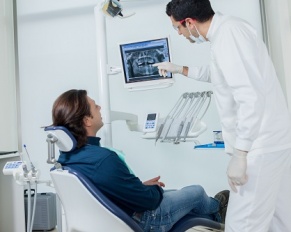
As coronavirus spread around the country, dental clinics had no choice but to shut down until we got things under…
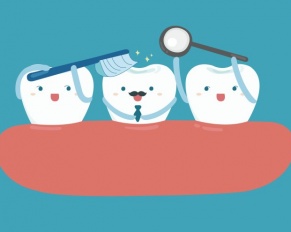
There are so many different toothpastes on the market these days that it can be tough sometimes to make an informed decision on which ones to purchase for all the members of your family. Should you buy the kind of toothpastes that whiten your teeth? Should your toothpaste contain fluoride for cavity protection? What about the kind of toothpaste that helps keeps your breath fresh, or the kind that controls tartar, or the kind that combats sensitive gums? Do these actually work? And what if you’re a smoker? Should you use a special kind of toothpaste made just for those who use tobacco? The fact is that there are so many different brands, flavors, and kinds of toothpaste on the market today, but there are really only just a few different types of toothpaste, with most stemming as hybrids from those types. If you’ve always wondered what type of toothpaste is best for you, here’s more information that may help break down the differences.

A popular misconception is that candy rots your teeth, but don’t blame candy for your cavities. Beverages like soda pop or fruit juices also wreak havoc with teeth, causing tooth decay. Below, are the causes for tooth decay, so you can be an informed consumer going forward and help preserve those pearly whites.

Like so many other industries, dentistry is rapidly evolving to suit patient needs. The traditional experience of going to the dentist has changed quite a bit over the past year due to Covid-19 precautions. The coronavirus, however, may have only accelerated a sea change in an industry that was already embracing new methods.
In response to patient demands for more convenience and greater transparency, virtual smile design was born. This innovation makes the most of advanced technology to create a digital representation of a patient’s smile. The dentist can then change the images to show how the patient would benefit from a treatment plan. The best part is that the design process takes place virtually.

Traditionally, milk is known for being good for teeth and bones. When you don’t have the time to pack lunch for the kids you don’t hesitate to remind them to buy milk. When did milk become the drink of choice for healthy teeth and bones? In fact, milk was so popular in America during the 50s and 60s that there was an occupation dedicated to delivering milk to homes. This healthy beverage continued momentum during the “Got Milk” ad campaign in the 90s and featured famous celebrities, including Britney Spears. Here you will find out why milk is still a recommended drink by dentists.
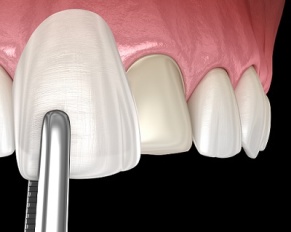
The effect of a missing tooth can have a huge impact on not only a person’s smile, but also on their overall health and well-being. For those who have recently lost a tooth or who have been meaning to replace a lost tooth for some time now, there are many solutions available to restore a smile to its original beauty. For immediate relief, schedule a tooth replacement consultation with a cosmetic dentist near you today. For those who would like to learn more about their available options, here are a few important things to keep in mind.
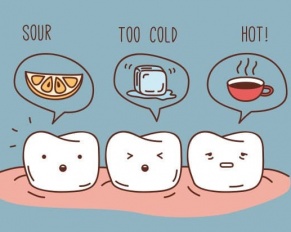
Here’s some fun facts and figures you can sink your teeth into. They are guaranteed to give you a grin, maybe even make you LOL and show everyone your pearly whites.
Whether you’re long in the tooth and wear them, or poor dental hygiene or an accident caused you to lose your natural teeth and wear dentures, they are not really a laughing matter, though many people poke fun at artificial teeth. Some folks are blessed to get dentures that fit perfectly, while others resort to leaving their teeth in a glass, taking them out only to eat meals.
Dentures are funny only when they are a wind-up pair of choppers that hop on plastic feet until they wind down. When we were kids, we delighted in those waxy, fang-like dentures that we stuck over our natural teeth, and when we tired of that gag, we chewed them up, their sticky red substance glomming all over our lips – ahh, youth.
We know there are many ways that people describe dentures, among them: choppers, store-bought teeth, china clippers, falsies, china chompers, box teeth, chain-store teeth and take-out teeth. Some people even refer to the place where they clean and soak their dentures as a chopper-hopper. Most people who wear dentures just grin and bear it – that is some 20 million people in the USA that wear dentures by the way.
Dentures or partial plates have been around for a while, in fact…
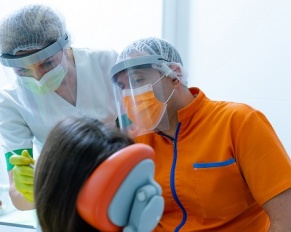
The coronavirus pandemic has altered so much of our daily routines that it’s almost tough to remember how things were…
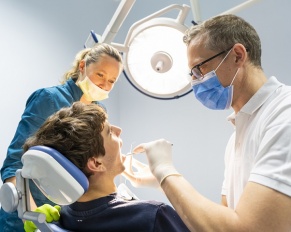
One of the daily health tips every dentist is going to suggest to their patients is to brush their teeth every single day. You are more likely to have a pleasant experience if you find the right toothbrush and this will make it easier for you to stick with the regimen suggested by the dental professional. When you stand in front of the display in the store though it can be difficult to choose just the right toothbrush. Do you need a toothbrush with soft bristles, hard bristles or medium bristles? It’s important for the toothbrush to feel comfortable. Aside from comfort, are there any benefits to having a toothbrush with soft or hard bristles? Are there any features that makes one a better choice than the other? The answers to these questions might surprise you.